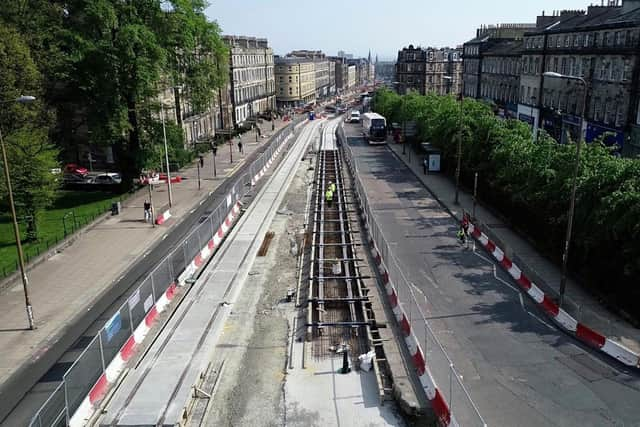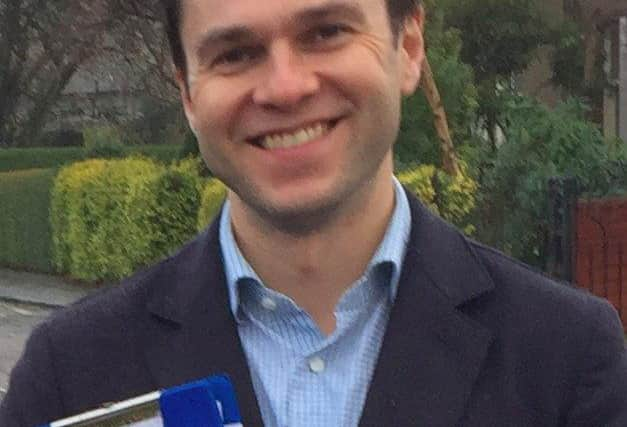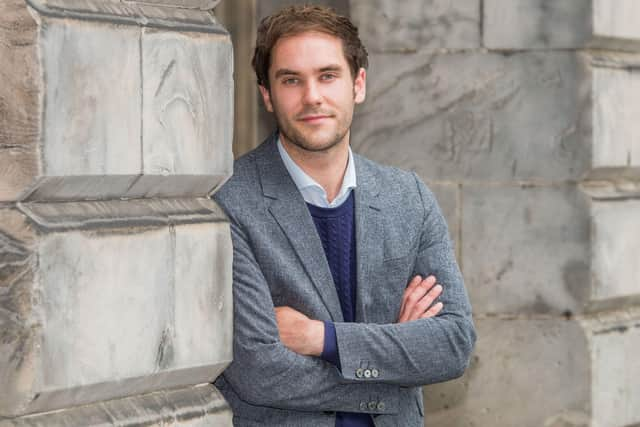£12 million funding gap blow is latest hitch for Edinburgh's trams to Newhaven extension
Let us know what you think and join the conversation at the bottom of this article.
The business case for the council’s ‘Trams to Newhaven’ extension project is based on certain pre-pandemic assumptions, such as the projected income from trams ticket sales.
One assumption made in the business case is that Lothian Buses will provide £18m, spread out over three years.
Advertisement
Hide AdAdvertisement
Hide Ad

However, over the last two years, Lothian Buses has been unable to pay, leaving a funding gap of £12m.
At a meeting of the full council, councillor Andrew Johnston asked: “The business case for the tram extension was predicated on an £18m dividend from Lothian Buses.
“Later on this evening we’ll be examining the accounts for 2020/21, and they report that two years in a row Lothians Buses has been unable to pay that dividend, and we now have a £12m gap in that funding case.
“I’d like to ask the council leader how he plans to fill it?”


Council leader Adam McVey, SNP, said: “Any revision to the trams business case will come before the council.
“The important thing for now is through Covid, assumptions are having to be revised.
“I know the assumptions based on things like footfall have changed dramatically just in the last few weeks and with the city centre, footfall is up to the pre-2019 levels and 2021 is showing a remarkable bounce back.


“That will all be brought back to councillors, but the important thing to remember is the team have done an absolutely amazing job through Covid, and keeping that project on the rails, so to speak, and within budget.”
Advertisement
Hide AdAdvertisement
Hide AdSpeaking after the meeting, councillor Johnston said: “'Two years ago the council's SNP/Labour administration were warned that the tram extension business case was seriously flawed, yet they knew better and forged ahead anyway.
“Now the council's accounts show that two years in a row Lothian Buses have been unable to pay a £6m dividend which the tram project relies upon, leaving a £12m black hole.
“Unsurprisingly the council leader was unable to give any explanation whatsoever as to how this funding gap will be filled.
“To make matters worse, the tram funding model is also reliant on future ticket sales - can we really expect passenger numbers, as predicted in 2019, to bear any resemblance to those of a post-Covid world?”
In November, a financial report, carried out on behalf of the council by London-based consultancy firm Steer, showed that the coronavirus pandemic could have such an enormous impact on the tram network extension that the cost of cancelling the project could be less than the cost of completion.
The report lists four possible scenarios, each dealing with varying levels of demand for public transport, which the scheme relies on to fund its £207.3m budget.
The most pessimistic scenario projects a drop in demand of just 20 per cent in the years following the pandemic, which would force the council to use £93m of its reserves and take until 2055 to pay back.
A message from the Editor:
Thank you for reading this article. We're more reliant on your support than ever as the shift in consumer habits brought about by coronavirus impacts our advertisers.
If you haven't already, please consider supporting our trusted, fact-checked journalism by taking out a digital subscription.
Comments
Want to join the conversation? Please or to comment on this article.